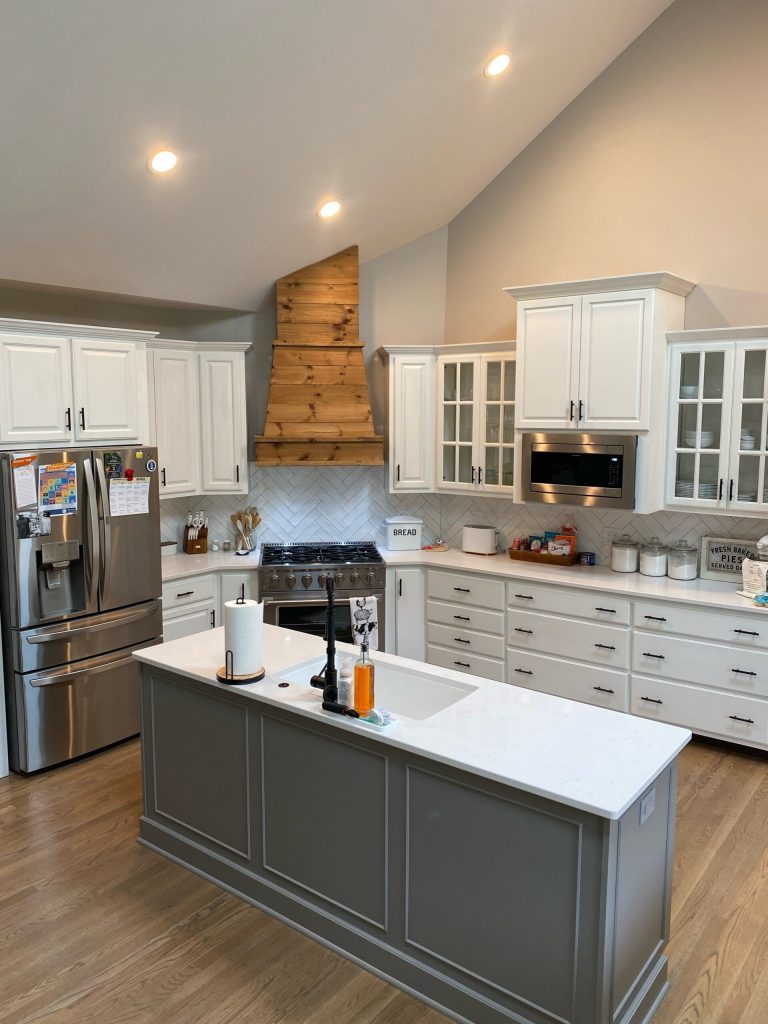Mycelium, the root structure of fungi, is gaining traction in the furniture industry, especially in the manufacturing of kitchen cabinets. As an innovative, eco-friendly material, mycelium offers a range of benefits that make it an ideal choice for creating sustainable, durable, and aesthetically pleasing kitchen cabinetry. From its renewable nature to its unique properties, mycelium is transforming how kitchen cabinets are made, providing both functional and environmental advantages.
1. Sustainability and Environmental Impact
One of the most compelling reasons to use mycelium in kitchen cabinet manufacturing is its sustainability. Mycelium is grown using organic waste products such as agricultural by-products, food scraps, and plant materials, making it a renewable resource that helps reduce reliance on non-renewable materials like wood and synthetic materials. The process of cultivating mycelium requires minimal energy and water compared to the production of traditional cabinet materials, making it a far more eco-friendly option for manufacturers.
Additionally, mycelium is fully biodegradable, meaning that once the cabinets have reached the end of their useful life, they will decompose naturally without contributing to landfill waste. This sustainable lifecycle contributes to reducing overall environmental impact and promoting a circular economy.
2. Durability and Strength
Despite being lightweight, mycelium boards are remarkably strong and durable. The natural growth process of mycelium results in a dense, interwoven network of hyphal threads that provide excellent structural integrity. When used in kitchen cabinet manufacturing, mycelium can withstand the everyday wear and tear that comes with kitchen use, including exposure to heat, moisture, and cleaning agents. Unlike wood, which can warp or become damaged by moisture, mycelium is naturally resistant to pests and mold, ensuring long-lasting durability in kitchen environments.
3. Customizable Design Options
Mycelium is a highly customizable material that can be molded into a variety of shapes and sizes, making it ideal for creating custom kitchen cabinets. Whether for modern, minimalist designs or more intricate, traditional styles, mycelium can be shaped to meet the specific needs of the design. The ability to customize mycelium allows for unique patterns, textures, and finishes that can enhance the aesthetic appeal of any kitchen. Mycelium can also be treated with different coatings to improve its water resistance and enhance its appearance, making it a versatile material for high-quality kitchen cabinetry.
4. Lightweight and Easy to Handle
One of the standout features of mycelium in kitchen cabinet manufacturing is its lightweight nature. Unlike traditional materials like wood or metal, mycelium is much lighter, making it easier to transport, install, and handle during the manufacturing process. The reduced weight not only lowers transportation costs but also simplifies the installation process, reducing labor time and improving overall efficiency.
5. Non-Toxic and Safe for Indoor Environments
Another key benefit of using mycelium in kitchen cabinets is that it is non-toxic and free from harmful chemicals. Many traditional cabinet materials, such as particleboard or MDF, can release volatile organic compounds (VOCs) into the indoor air, negatively impacting indoor air quality. Mycelium, being a natural material, is free from these harmful chemicals, making it a healthier choice for indoor use. This is particularly important in kitchens, where families spend time preparing food and the air quality needs to be as clean and safe as possible.
6. Aesthetic Appeal
Mycelium has a natural, earthy texture and aesthetic that brings warmth and character to kitchen cabinetry. Its subtle, organic appearance allows it to blend seamlessly with various interior styles, from rustic and natural to sleek and modern. The ability to customize mycelium’s texture and appearance gives designers the flexibility to create unique, visually appealing cabinets that enhance the overall look of the kitchen. Mycelium’s natural tones also create a warm, inviting atmosphere in the heart of the home.
7. Cost-Effectiveness
While mycelium may initially seem like a more expensive option compared to traditional materials, it is, in fact, a cost-effective choice in the long run. Mycelium requires less energy to produce and is grown using organic waste, which reduces production costs. Furthermore, mycelium’s durability and resistance to wear mean fewer repairs and replacements are needed, ultimately saving costs over the lifespan of the cabinets.
